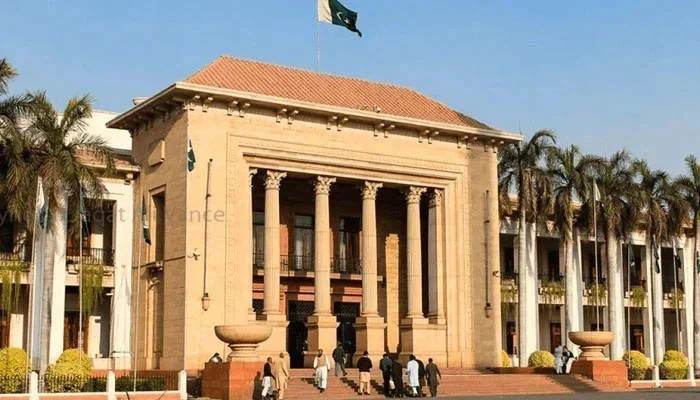Massive Irregularities Uncovered in Punjab Government’s Accounts
The Auditor General of Pakistan’s report for the audit year 2024-25 has revealed significant irregularities in the Punjab government’s expenditure accounts. These include instances of fraud, misappropriation, overpayments, fiscal mismanagement, flawed procurement processes, and unauthorized retention of consolidated fund revenues, totaling over Rs1 trillion.
The recently released report highlights several key audit findings:
- 14 cases of fraud and misappropriation amounting to Rs3.1 billion
- 50 cases of unauthorized or excess payments, reaching Rs25.4 billion
- 21 cases of financial mismanagement totaling Rs10.6 billion
- 45 cases of improper procurement practices adding up to Rs43 billion
- 12 cases of unauthorized retention of consolidated fund receipts in commercial banks, alongside imprudent decisions by autonomous bodies to keep public funds in non-interest bearing accounts, amounting to Rs988 billion
- 24 cases of irregularities related to human resources, totaling Rs8.2 billion
- 7 cases of deficiencies in performance, amounting to Rs3.6 billion
The audit revealed potential recoveries of Rs25.4 billion. Actual recoveries from February 2024 to January 2025 amounted to Rs2.2 billion, which the audit team has verified.
The report points out weaknesses in internal controls related to financial management, procurement, contract oversight, HR practices, payroll procedures, asset handling, and overall budget planning and implementation.
The report suggests that the administration should probe instances of misappropriation and fraud, taking legal action against those responsible. It also calls for recovering overpayments and unauthorized disbursements, improving the recovery system, strengthening internal control measures, and enforcing disciplinary actions against implicated government officials. Furthermore, it emphasizes adherence to the Punjab Procurement Rules 2014, preventing the diversion of provincial consolidated fund receipts for retention in commercial banks, and ensuring merit-based recruitment to reinforce HR controls. Enhanced monitoring and evaluation of key performance indicators and key result areas are also recommended to boost project outcomes and service delivery.
The audit report for 2024-25 encompasses the fiscal year 2023-2024.
Specific cases highlighted in the report include:
- Non-reconciliation of e-pay online receipts amounting to Rs282 billion
- Non-recovery of loans and advances from companies/development authorities – Rs352 billion
- Long-outstanding dues not reported as receivables – Rs282 billion
- Unreported amount of Punjab Consolidated Funds held in commercial bank accounts – Rs44 billion, with non-deposit of interest – Rs2 billion
- Failure to retrieve illegally encroached state land of 541.563 acres
- Granting subsidies to ineligible farmers worth Rs480 million
Approximately 73% of the Punjab government’s total expenditure was allocated to four sectors: Communication and Works (41%), Health (15%), Education (6%), and Housing, Urban Development, and Public Health (11%). Agriculture, despite being a key economic driver in Punjab, received only 4% and 5% of spending for the Irrigation Department and Agriculture Department, respectively. The remaining 18% was distributed among departments such as Environmental Protection, Excise & Taxation, Mines & Minerals, Women Development, Forestry and Wildlife & Fisheries Department.
Salaries and employee benefits accounted for 25% of total expenditure, debt repayment for 20%, and debt servicing for 5%. Repair and maintenance received only 2% of the total expenditure.
The Punjab government has been urged to enhance revenue collection and implement reforms in its budgetary and expenditure management systems to improve value for money. Measures such as business process re-engineering, expanding e-services, increasing agricultural productivity and industrial output, recovering pending claims, revising rules and regulations, and leveraging modern research and development tools for resource planning, distribution, and monitoring are expected to yield positive results.
Punjab Minister for Information Azma Bokhari responded to the AGP report, stating that due process would be followed. The findings will be presented before Special Departmental Accounts Committees (SDACs), and unresolved issues will be forwarded to the Public Accounts Committee (PAC) for review. Decisions made by the PAC will be duly implemented. Any action taken before the PAC considers the unsettled issues would be premature and against established procedures, she added.



Comments (0)
No comments yet. Be the first to comment!
Leave a Comment